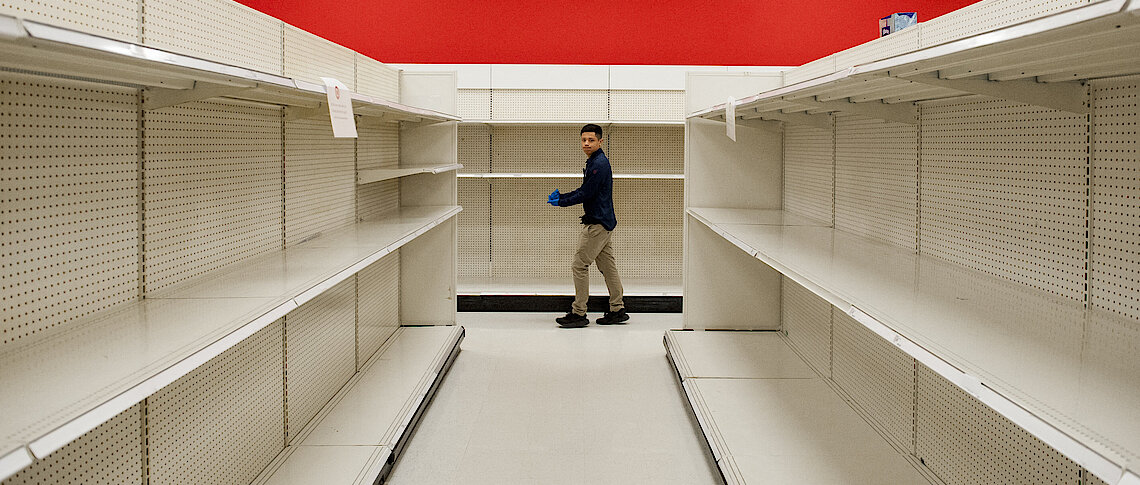Mike Pence bowed his head in prayer. Around him in the White House, some of the world’s most prominent scientists were gathered.
It was 26 February when the US vice-president and the scientists united in prayer, for — or, rather, against — the coronavirus epidemic. As governor of Indiana, Pence had made a name for himself driving drastic cuts in public-health funding and access to HIV-testing. This contributed to one of the largest outbreaks of the infection ever in his home state.
Since the 2016 elections, the administration of Donald Trump has slashed federal funding for pandemic prevention. The president has banned the country’s leading experts from public comment. All communication is by way of Pence.
The pair are holding science to ransom. It is a profoundly degrading and depressing sight.
The question is how Trump’s propaganda machine will deal with the situation if, or when, 200,000 Americans die from the virus? Will Fox News claim the infection was spread by immigrants?
The big one
This is the big one, this is the great crisis, the Financial Times writes. I am convinced that 2020 is a year that will define our era. One can compare it with the 2008 financial crisis. That led to recession and mass unemployment, but not to the death of hundreds of thousands.
This problem can be reduced neither to ethical virtues nor to a need for investments.
In Sweden, the situation is getting more serious by the day, according to the Public Health Agency. But it inspires trust that the response is managed by experts, not by religious fanatics or politicians short-sightedly craving maximum public attention. And that management is being publicly scrutinised, questioned and discussed, as it should.
Yet this is still merely the beginning. First, the crisis arrives. Then comes the grief. Then comes the time for reflection.
Strong state
Already however, we know this: this type of disease cannot be efficiently fought at an individual level, but only as a society. It requires preparation, co-ordination, planning and the ability to make rapid decisions and scale up efforts. A strong state.
But nor is government enough. The situation demands personal responsibility, a sense of duty, concern for one’s neighbour. If you do not belong to a risk group, your responsibility is not so much to protect yourself but to take care to protect others, even if that pushes you towards personal discomforts.
Yet what will you do if you simply cannot afford to stay at home? If you are illegally in Sweden (say), hiding from the authorities, or a ‘gig’ worker without regular salary in the US, living from hand to mouth? Sustaining health as a public good becomes impossible at a certain level of inequality and insecurity.
Bizarre times
This problem can be reduced neither to ethical virtues nor to a need for investments. What can be said, though, is that the crisis puts the flaws of our short-sighted, exploitative, hyper-individualistic times in glaring focus. Our bizarre era, where we pretend that we do not all connect, and that what I do does not actually affect your future.
At a global level we have underinvested for decades in research on infectious diseases and pandemics. Such investment does not produce fast profits and rising share prices for the medical companies, which much prefer to invest in research on heart disease, dealing with anxiety and erectile boosters. Public-health investments are not commercially viable in late capitalism.
One cannot protect oneself against new diseases. What can be done is to mitigate and manage probable and possible events.
This is just one example of the vulnerabilities we expose ourselves to. Economists call it ‘market failure’. That expression says it all, really.
The 2008 financial crisis did not lead to any reassessment. Quite the contrary. No one knows what conclusions we will draw this time around, at an individual and collective level. I wonder if young people might come to think that authoritarian China dealt with the crisis better than the US — the land of the free.
Driving forces
I lie awake at night and various scenarios play out in my head. People in overcrowded hospital corridors, crashing stock markets. But, mostly, I think of my parents and friends in the risk group — people I immediately care about.
One cannot protect oneself against new diseases. What can be done is to mitigate and manage probable and possible events. The threat of pandemics — and the fact that we are quickly moving towards the so-called tipping points of the climate crisis — is well known. But the driving forces behind the short-sightedness of our economic and political system are so powerful that even known risks are impossible to manage.
The cash must keep flowing, quarter by quarter. Until the crash comes.
This article is a joint publication by Social Europe and IPS-Journal. A Swedish version appeared in Aftonbladet.






